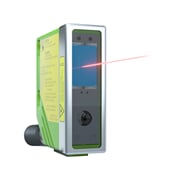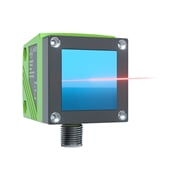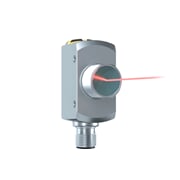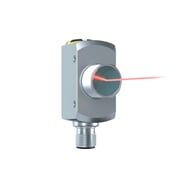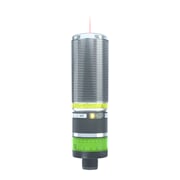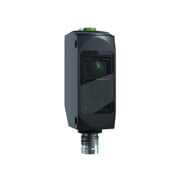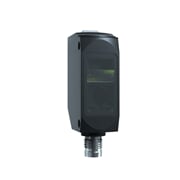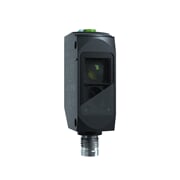Laser sensors
Laser sensors reliably detect even small objects of various material types over large distances. Due to the small light spot, they are able to work very precisely at a long range. Laser distance sensors are ideally suited for detecting the presence of objects and measuring distances. Read more here
 Cloud compatible
Cloud compatible 50+ in stock!
Online -5,5 %
265.87 €
251.25 €
 Cloud compatible
Cloud compatible 50+ in stock!
Online -5,5 %
220.85 €
208.70 €
 Cloud compatible
Cloud compatible 50+ in stock!
Online -5,5 %
128.89 €
121.80 €
 Cloud compatible
Cloud compatible 50+ in stock!
Online -5,5 %
97.09 €
91.75 €
 Cloud compatible
Cloud compatible 50+ in stock!
Online -5,5 %
61.28 €
57.91 €
How laser distance sensors work
Laser distance sensors from autosen use the "time-of-flight" measuring principle for precise distance measurement. Laser light consists of a parallel light beam the light waves of which have the same phase relationship with each other (coherence). Laser light is emitted, reflected at the target and the reflection is detected in the same housing. The travel time measurement of the light signal ensures that very long distances can be measured precisely.
Laser distance sensor: Advantages and disadvantages
Laser distance sensors are not only used for position detection but also furnish a precise measured value. This is why you cannot only use distance sensors to determine whether an object is present or not, but you can also output the exact distance between sensors and object.
How laser diffuse reflection sensor / retro-reflective sensor / through beam sensor work
The photoelectric sensors AL005-AL008 are diffuse reflection sensors, retro-reflective sensors and through beam sensor using laser light. Their functional principle is exactly the same as with comparable devices with red light and infrared light. The decisive advantage of the laser light variant is that it can also reliably detect very small object by the fine laser beam.
Laser light – advantages and disadvantages vs. red light and infrared light
Laser light produces a bundled small light spot which can also be detected well at great distances. This helps when aligning the sensor and when reliably detecting small parts along great distances. The focused laser light is very high in energy and therefore highly differing surfaces can be reliably detected even under the influence of extraneous light. Laser light is dangerous to the human eye and therefore respective safety measures have to be observed for installation as a function of the laser class. The measuring principle and the electronics are more elaborate as for simple photoelectric sensors only thus rendering laser distance sensors more expensive.




